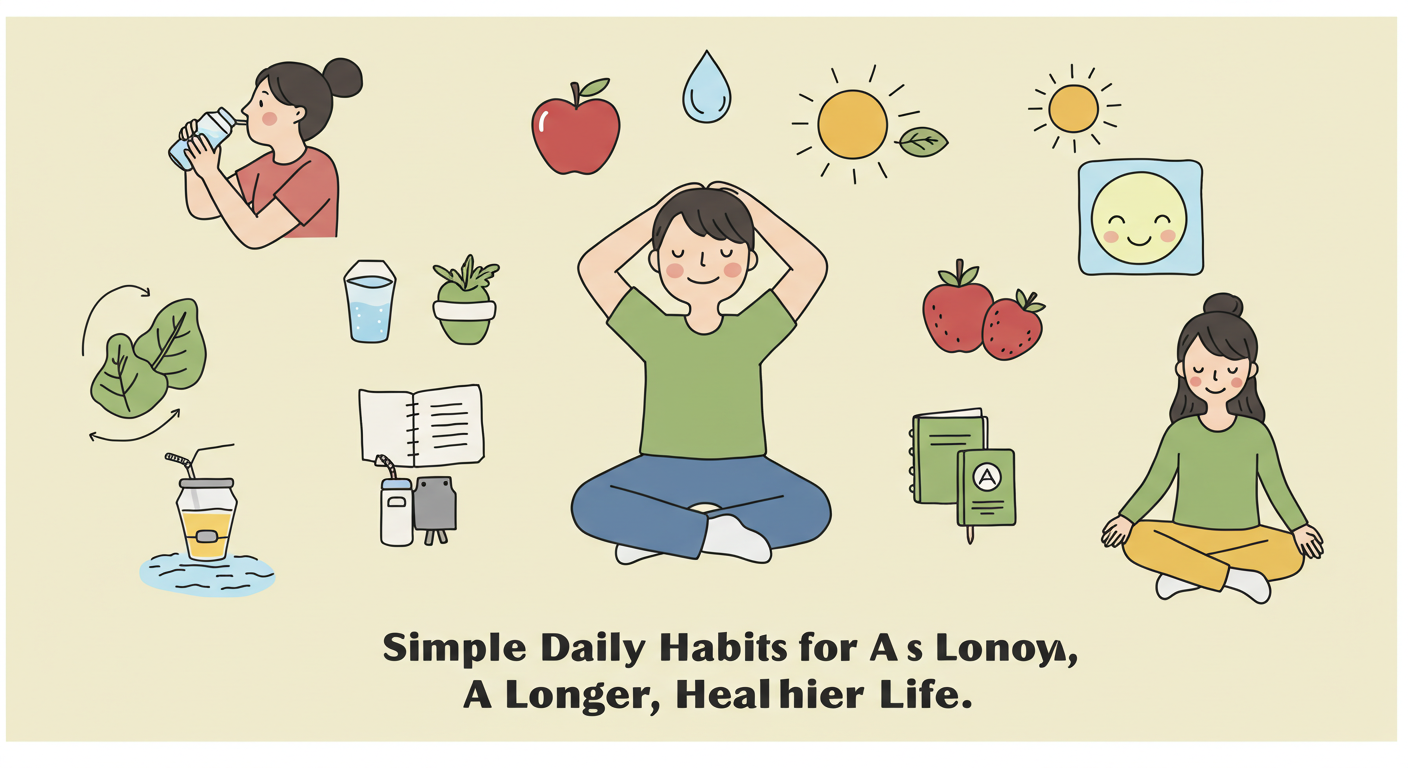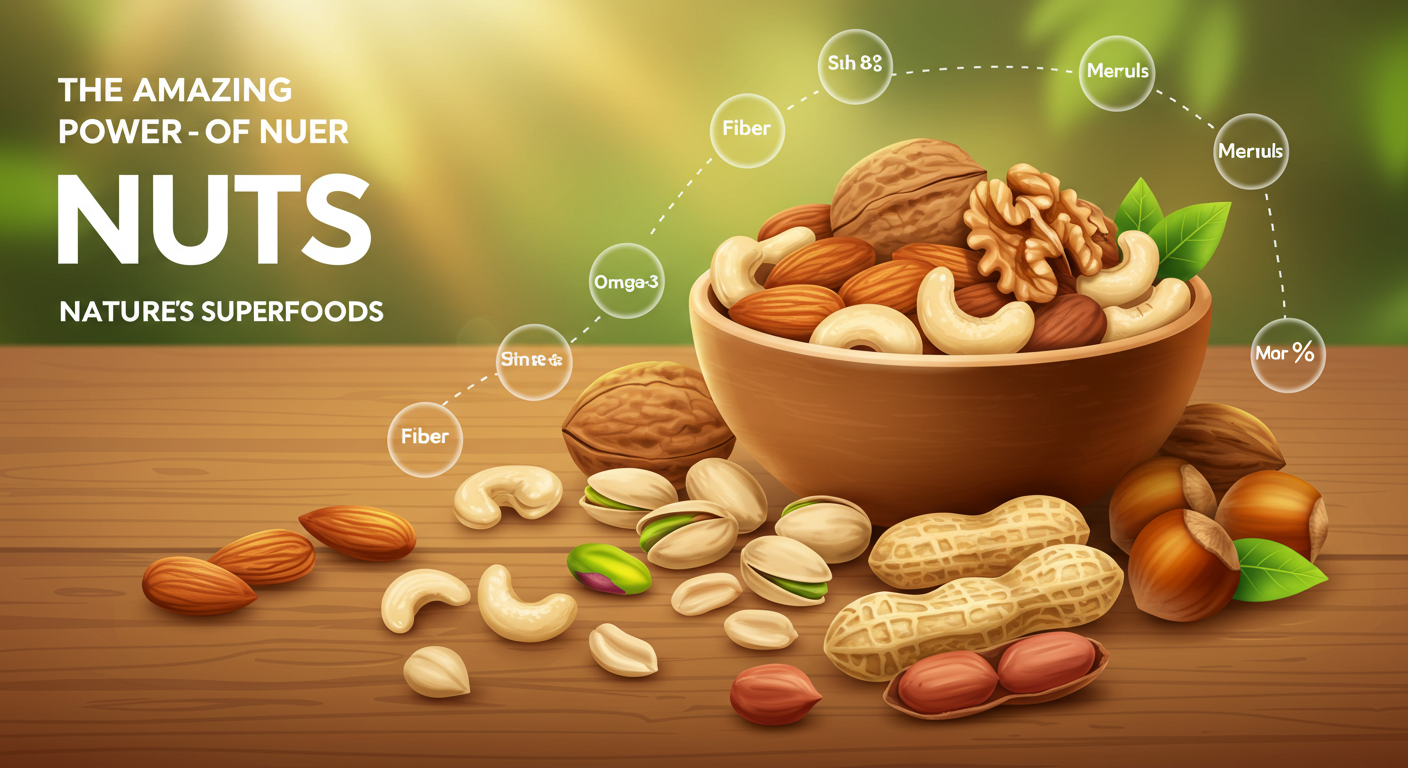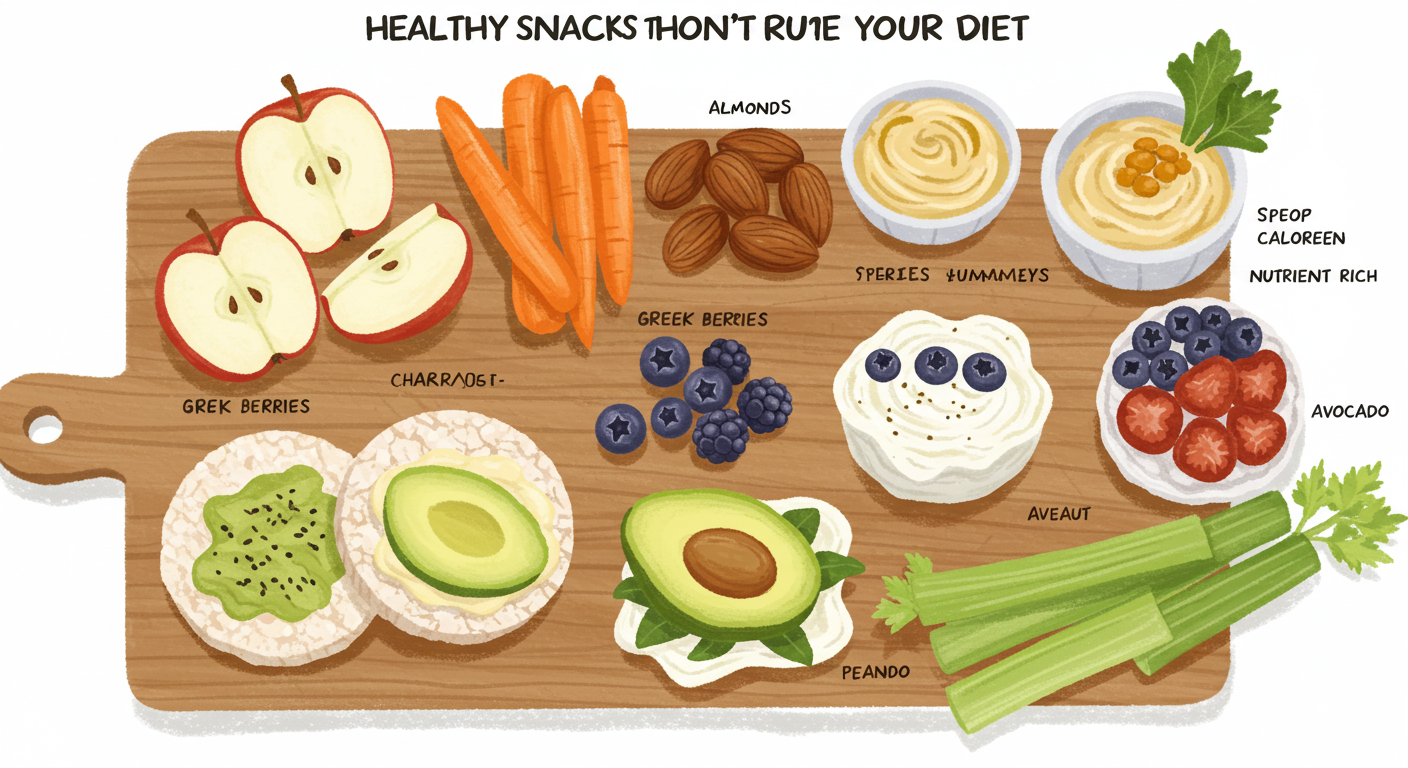Everyday Choices for a Longer Life
I used to think genes played the biggest role in how long I’d live, but I learned environmental factors like diet and lifestyle are key. Adding nuts to my daily snacks has been a game-changer. These nutritional powerhouses are rich in protein, fiber, antioxidants, and beneficial plant compounds like copper, magnesium, potassium, folate, niacin, and vitamins B6 and E. Recent reviews of over 350,000 people show that just one serving of nuts per week can decrease the risk of all-cause mortality by 4%, while 3 servings weekly cuts premature death risk by 39%. Eating nuts helps reduce heart disease, high blood pressure, inflammation, diabetes, metabolic syndrome, belly fat levels, and even some forms of cancer, making my nutritious diet a cornerstone for longevity.
Turmeric, a great option for anti-aging strategies, is my go-to spice in cooking. Its potent bioactive compound, curcumin, has antioxidant and anti-inflammatory properties that protect against cancers, cardiovascular diseases, inflammatory diseases, neurodegenerative disorders, and age-related diseases. In vivo and in vitro studies in humans, plus animal studies on insects and mice, suggest curcumin may increase lifespan, and since it’s been consumed for thousands of years in India, it’s generally considered safe. I also focus on a plant-rich diet with a wide variety of plant foods like fruits, vegetables, nuts, seeds, whole grains, and beans, which are packed with nutrients, antioxidants, polyphenols, carotenoids, folate, and vitamin C. Vegetarian and vegan diets, naturally higher in these, lower the risk of premature death by 12–15% and reduce risk of dying from cancer, heart, kidney, or hormone-related diseases by 29–52%, unlike meat consumption, especially processed meat, which can increase disease risk.
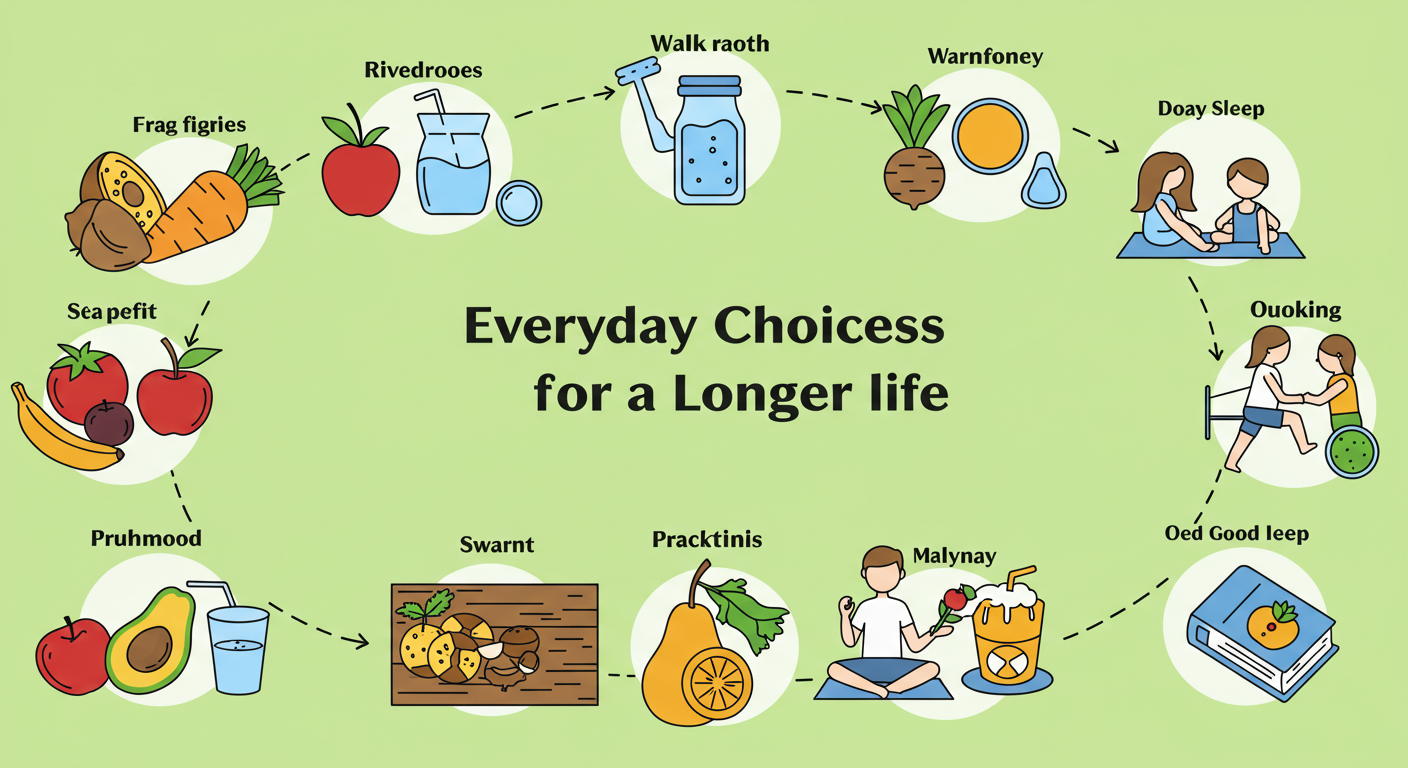
Staying physically active is non-negotiable for me. Just 15 minutes of exercise per day can add up to 3 years to your life, with each additional 15 minutes of daily physical activity cutting early death risk by 4%, per a recent review. Hitting the 150-minute recommendation weekly makes me 28% less likely to die early, and vigorous activity beyond that offers a 5% greater reduction compared to low-intensity or moderate-intensity activities. Exercising less than 150 minutes a week still lowers early death risk by 22% for individuals over 60. I’ve also quit smoking, as it’s strongly linked to disease and early death. Quitting tobacco before age 40 can prevent nearly all increased risks, and quitting at age 35 can prolong lives by up to 8.5 years, while even quitting in my 60s or 80s can provide benefits, like up to 3.7 years added. Heavy alcohol consumption raises risk of liver, heart, and pancreatic disease, but moderate consumption—1–2 units a day for women (max 7 a week) or less than 3 units for men (max 14 a week)—like wine with its polyphenol antioxidants, cuts premature death risk by 17–18%. A 29-year study showed men who preferred wine were 34% less likely to die early than those choosing beer or spirits, though no strong research suggests moderate drinking beats abstaining from alcohol.
I prioritize happiness and healthy social networks to significantly increase my longevity. A 5-year study period found happier individuals had a 3.7% reduction in early death, and 35 studies suggest happy people live up to 18% longer than less happy counterparts. A study of 180 Catholic nuns showed those with self-reported levels of happiness at 22 years of age were 2.5 times more likely to be alive six decades later. Healthy social networks improve my odds of survival by 50%, and having 3 social ties cuts early death risk by over 200%, boosting heart, brain, hormonal, and immune function. Providing support to others feels more beneficial than receiving it, so I make time for friends and family, accepting care and returning the favor. I avoid overeating, as calorie restriction (a 10–50% reduction in normal calorie intake) in animal studies and human populations renowned for longevity shows a lower likelihood of disease and an extended lifespan, though long-term calorie restriction can be unsustainable with negative side effects like increased hunger, low body temperature, and diminished sex drive. By eating a nutritious diet, exercising regularly, and managing stress and anxiety through laughter and a positive outlook, I decrease my risk of heart disease, stroke, lung cancer, and chronic diseases, knowing pessimistic individuals face a 42% higher risk of early death compared to optimistic people.
Healthy Habits for a Vibrant, Long Life
I used to think family history and genetics were the main drivers of longevity, but I’ve learned that lifestyle choices play a big role in living longer. A healthy diet has transformed how I feel, focusing on plant-based foods like fruits, vegetables (like those in the Mediterranean diet, excluding potatoes), nuts, seeds, whole grains, beans, legumes, and fish, while I minimize red meat and processed meat. A study in JAMA Network Open found women who adhered to this dietary pattern were 23% less likely to die from any cause, thanks to foods from plants packed with antioxidants like beta carotene, lycopene, and vitamins A, C, and E. These protect cells from damage, support immune cells to defend against infections and health threats, and help my body repair or replace damaged cells, promoting longevity and reducing increased risk of chronic diseases like diabetes, cardiovascular problems, cancer, inflammation, and obesity.
Regular physical activity keeps me active and productive, and it’s one of the keys to a long life. The 2018 Physical Activity Guidelines for Americans recommend adults get 150 minutes a week of moderate activity like walking, weight lifting, or lower-intensity exercises, or 75 minutes of vigorous movement like running, bicycling, or swimming. Even household tasks like cleaning or gardening count, as do lifting small hand weights or leg lifts while watching TV. I aim for muscle-strengthening activities two days a week, which contributes to greater longevity by making my heart, lung function, blood vessels, and muscles stronger, improving balance, and maintaining a healthier weight. This lowers my risk of heart attack, stroke, falling, and diabetes, while helping me sleep better and improve my mood. Moving more truly extends life, and I’ve noticed how much more energy I have since adopting these simple things.
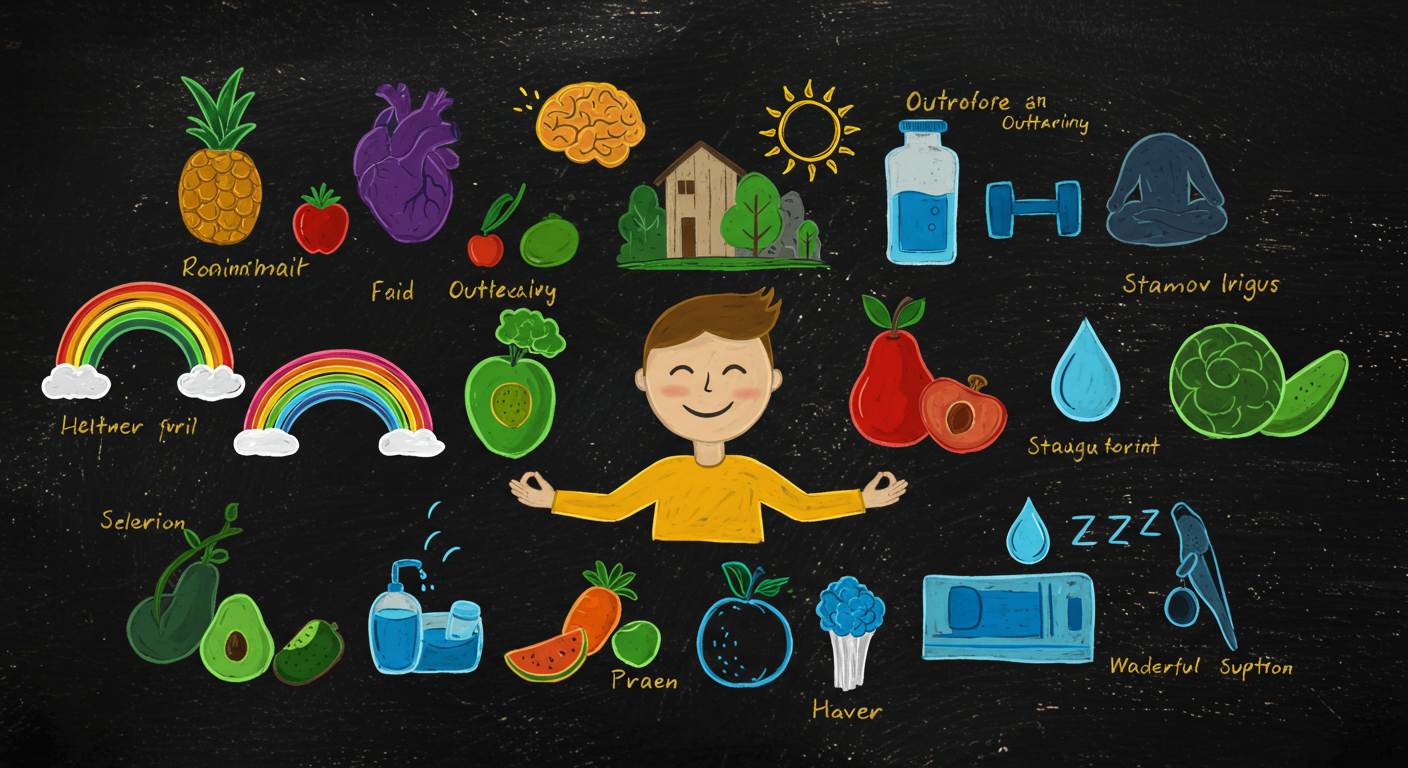
I’ve also made good lifestyle choices to stay healthy. Smoking is proven to shorten lifespans, as it damages lung function, heart health, skin health, and oral health, and increases risk of cancer. I never smoke, but for those who do, quitting with effective ways like smoking cessation medications can help. Excessive alcohol use raises risk of liver damage, cancer, serious accidents, depression, and can impair the immune system, so I stick to moderation—one drink or less a day for women, or two drinks or less for men, knowing drinking less reduces health risks. Quality sleep is vital for good health and well-being, so I aim for seven to nine hours a night, as inadequate sleep can raise risk of chronic health problems affecting the heart, brain, lungs, and immune system. A study of 11,000 adults showed that staying well hydrated leads to fewer chronic conditions like heart and lung disease, helping me live longer.
Socializing has been a surprising boost to my emotional health. A study of 28,000 people linked frequent social activity to significantly longer survival, with greater frequency of socialization increasing the likelihood of living longer. I make time for doing things I love with others, which contributes to a good quality of life. Positive thinking and optimism, as two recent studies found, are linked to a longer lifespan in women from diverse racial and ethnic groups and better emotional health in older men. These powerful benefits keep me motivated to maintain healthy behaviors. While genetics accounts for about 25% of human life span variation, as experts estimate, the rest is attributed to how I take care of my body. Since 1900, when the average lifespan in the U.S. was 47 years, life expectancy has increased to 77.5 years for people born in 2022, and my healthy lifestyle choices ensure I’m enjoying a long, healthy life.
Start Your Day Right with Breakfast
I used to skip breakfast, thinking it saved time, but I learned it’s important to jump-start my metabolism and stop overeating later. Meal prep has been a game-changer for me, helping me plan my meals to keep things light and healthy. Studies show adults who eat a healthy breakfast do better at work, and kids with a morning meal score higher on tests. I don’t always have a big plateful, but even a granola bar or a piece of fruit gives me energy and keeps me in control of what I’m eating. This habit helps me add protein and vitamins to my meals, setting a strong foundation for a healthier day.
Cutting back on sugar, fat, and carbs is easier when I consider my goals and needs, like trying to lose weight. I used to grab doughnuts from the breakroom at work, but now I know planning meals helps me save time and money in the long run. A healthy breakfast also supports my body and mind, making me feel more active and focused. For example, pairing my breakfast with a piece of fruit like an orange or watermelon slices ensures I get vitamins without the sugary drinks linked to obesity and type 2 diabetes. This small change makes a big difference in my day.

I’ve also noticed how breakfast ties into other habits, like staying hydrated. I’m not always a fan of plain water, so I add flavor with lemon, lime, or cucumber slices to drink plenty of water, which does good things like helping me lose weight and stay hydrated, a top priority on my list. A healthy breakfast fuels me for an exercise break, where I might get up and move with deep lunges or stretches for 30 minutes five times a week. This helps keep the blues at bay and supports my body and mind, making my mornings great for tackling tests or work challenges.
Even on busy days, I block out time to avoid skipping breakfast, as it stops me from mindless snacking later. I’ve found that a light morning meal helps me stay active and avoid overeating, which aligns with my goals of a healthier lifestyle. Whether it’s a granola bar or a piece of fruit, this habit keeps me sharp and energized, proving studies right about adults and kids performing better with breakfast. It’s a simple step that makes me feel in control, ready to move through my day with energy and focus, and it’s become a non-negotiable part of my routine.
Everyday Steps for a Healthier You
I’ve learned that choosing a nutritious meal for breakfast sets the tone for a healthy day, especially since I started to limit unhealthy foods like those high in sugar, fat, and calories. Focusing on more protein and fiber while following dietary recommendations for weight-control foods has helped me stay healthy and avoid overeating. When I was stuck at home during the pandemic, I noticed how easy it was to slip into sedentary time, which brought feelings of stress, anxiety, sadness, and uncertainty. But by prioritizing healthy eating, I kept my immune system strong, reducing the increased risk of diabetes, heart disease, and stroke linked to extreme obesity or poor diet.
Drinking water regularly became a game-changer for me, as staying hydrated is vital to stay healthy and supports losing body weight. I limit sugared beverages, knowing they add up calories quickly and are linked to serious chronic medical conditions like type 2 diabetes. There’s no evidence that drinking water frequently, like every 15 minutes, can prevent viral infection like coronavirus, but it’s a good idea to keep water intake steady. I also take a multivitamin supplement to ensure sufficient levels of micronutrients like vitamins A, B6, B12, C, D, E, zinc, iron, copper, selenium, and magnesium, which are vital for my immune system. However, no evidence supports miracle mineral supplements or high doses of vitamins for protecting against viruses or increasing recovery, and they can even be bad for health.
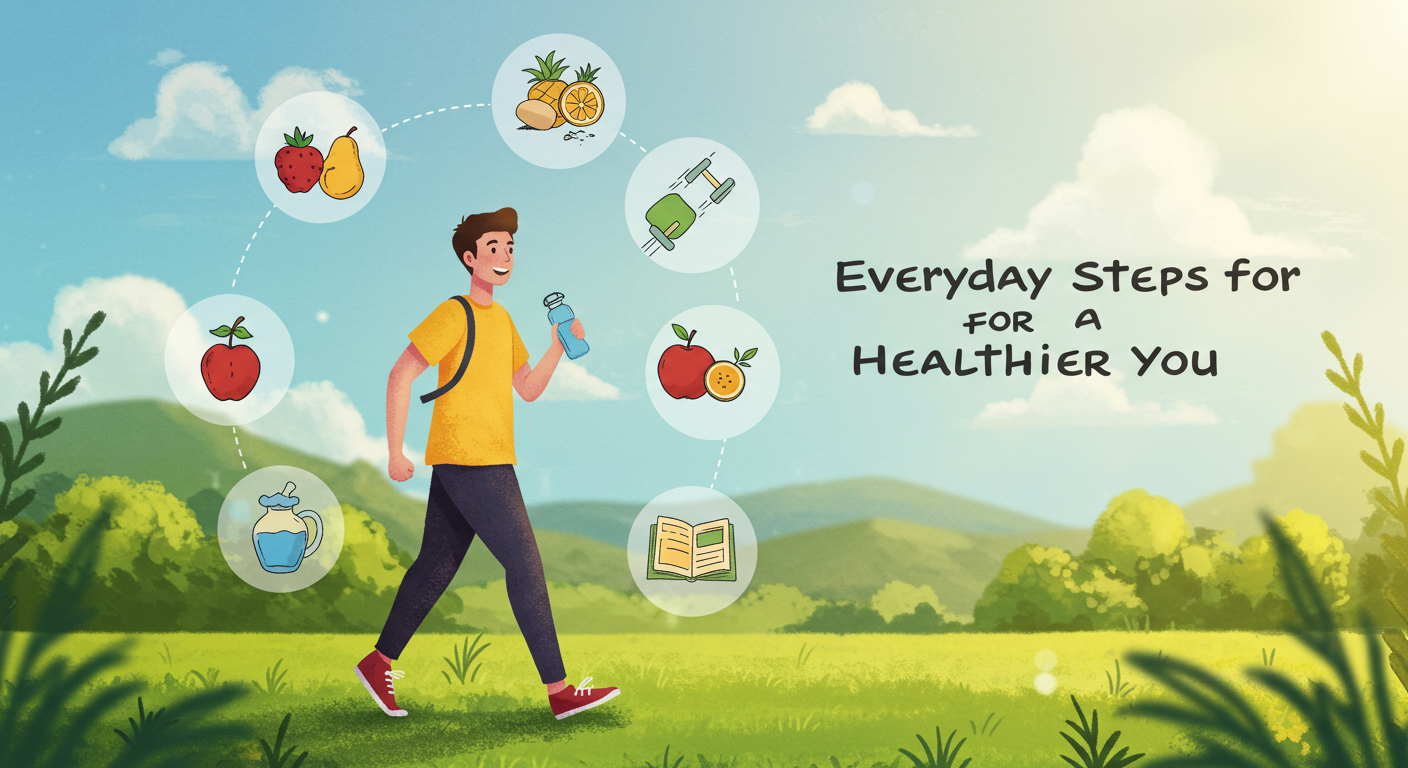
To stay physically active, I exercise regularly with at-home workouts or a simple walk with my dog. Even when restrictions or mandatory self-quarantines limit going outside, I consider taking breaks from sitting and screen time, like walking around the room a couple of times a day, to reduce the increased risk of heart disease and stroke. I know my area’s guidelines to stay physically active safely. Getting good sleep for seven to eight hours a night keeps my immune system functioning properly, and there’s a strong connection between sleep quality and quantity and overall health. I also go easy on alcohol, as drinking alcohol in moderation prevents alcohol calories from piling up and doesn’t protect against coronavirus infection, reducing risks of stress-related weight gain.
I use an app to keep track of my movement, sleep, and heart rate, which helps me see if I’m losing or gaining body weight on a daily or weekly basis. For those with serious chronic medical conditions like diabetes or heart disease, talking to medical providers and listening to their advice is key to avoid experiencing complications or getting sick from COVID-19 infection. To manage my emotions, I find ways to minimize stress, fear, and anxiety, using coping strategies to stay balanced. By measuring and watching my body weight, I stay in control, ensuring my lifestyle choices help me avoid health risks like hypertension or heart attack while promoting well-being for a healthier, longer life.






